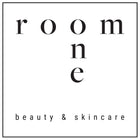Your Quick Guide to Retinol
Your Quick Guide to Retinol
I think it's safe to assume that you've heard of retinol. It's easily one of the most (if not the most) talked about skincare ingredients worldwide, and likely one of the most well-researched and well-studied ingredient in the beauty industry.
There is no lack of retinol topics online, but while it's touted as a must-have ingredient I've often found that my clients don't actually know much about why it's important and what it actually does for the skin. And most surprisingly, I've found that more often than not, it's being introduced into skincare regimes much later than it should to really maximize the benefits that makes retinol 'The' powerhouse ingredient.
What is retinol and when should I start using it?
Retinol is a type of retinoid, a derivative of vitamin A, and it is arguably the most popular retinoid. It's known as a hero ingredient that delivers proven results for the skin and should be started as soon as your early twenties to maximize its benefits.
Around the age of twenty our collagen production begins to decline. In addition, as we continue to age our cellular turnover also begins to slow, and years of sun exposure further catapult the aging processes through cellular damage and visible sun damage. So while signs of aging may not begin to become visible until we're well into our thirties and forties, the decline in cellular function begins much earlier in life, as does the depletion of vitamin A within the skin.
This is why starting retinol sooner rather than later is vital because it helps to promote collagen production and increase cellular turnover while improving some of the most common skin concerns; such as reducing fine lines, diminishing pigmentation, smoothing texture, reducing blemishes, thickening the epidermis and more.
What retinol is best for me?
Generally clinical-grade retinol is available in .03%, .05% and 1.0%, and while traditionally retinols are loton formulas there are also forms of retinol within serums and oils (which are a great option for those with sensitive skin that also want to include this potent ingredient).
In my opinion, it's best to begin with a .03% to .05% as these potencies are highly effective and generally easier for the skin to acclimatize to. The art to truly benefiting from retinol is to feed the skin a potency it can handle, and to begin nightly application just 1 to 3 nights per week as you slowly increase frequency of application.
If you have concerns with aging, pigmentation, sun damage, uneven skin tone, or melasma you'll want to pickup Marini Luminate Face Lotion, which delivers statistically equivalent results to the gold standard 4% hydroquinone. If you have concerns with aging, laxity, texture, pore size, and overall luminosity then Age Intervention Retinol Plus is your go-to.
Is it best to start retinol in autumn?
When first introducing a retinol, the best season to start is autumn and winter. The reason being that retinol causes photo sensitivity (which is why we apply it PM), and so less sun exposure in winter months makes it the perfect time to begin. Once acclimatized you can continue to use retinol through the summer months, although I generally only recommend this to those who are cautious about their sun exposure and serious about their sunscreen application.
My skin is super sensitive, can I use retinol?
If you're absolutely brand new to clinical-grade skincare or have compromised or reactive skin, I recommend beginning with reintyl esters. Ester forms of Vitamin A are gentler on the skin while being highly effective, making them optimal for a daily application that won't compromise or sensitize the skin (also making it a perfect option for sensitive skin types). Unlike their counterparts, esters do not cause photo-sensitivity.
Environ's vitamin step-up system is a fantastic option for delivering doses of vitamin A and acclimatizing the skin to vitamin A before adding in a retinol. Think of it as a multivitamin for the skin. A client favourite is Vita-Peptide C-Quence Serum 1 which combines vitamins A, C & E, peptides and antioxidants for an accelerated focus on improving signs of aging.
Alternatively, a popular and gentle retinol that is well-loved by clients is Vita-Antioxidant Hydrating Oil Capsules. This nighttime finishing oil can be applied 2 to 3 nights per week to deliver hydration, antioxidants, and a dose of retinol to the skin, and because it is layered overtop your routine, it is the gentlest form of retinol available in shop.
If you have any common skin concern look no further. Vitamin A is a non-negotiable ingredient as is, but when delivered within retinol the benefits are only further maximized for both visible benefits you'll notice almost instantly, and long-term benefits you'll thank yourself for 20 years from now.
